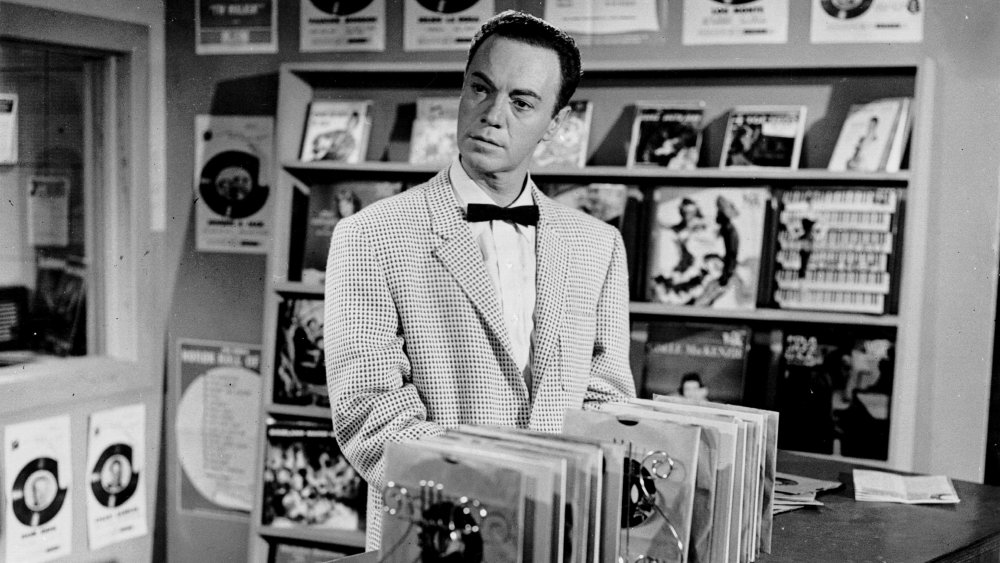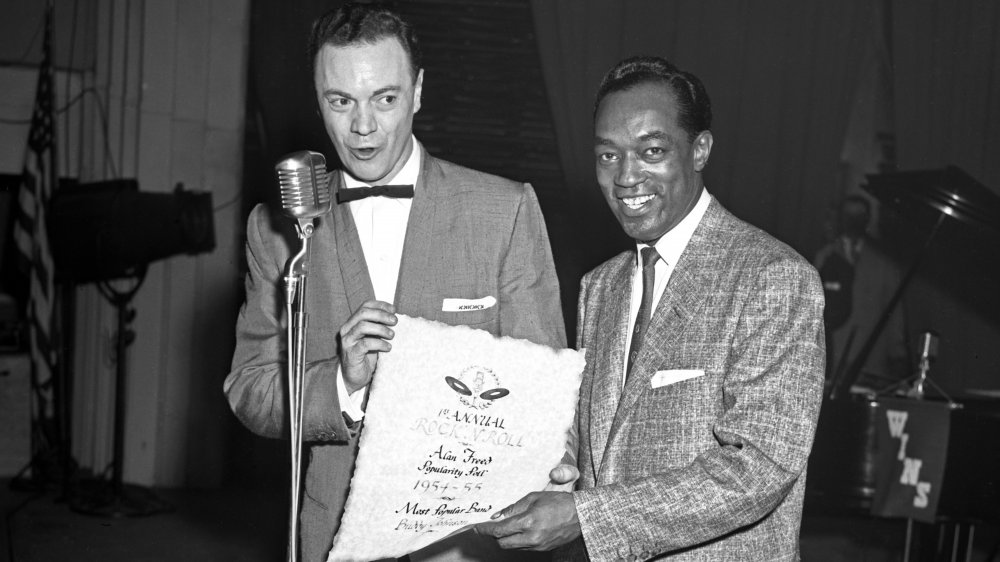The Reason Rock And Roll Legend Alan Freed Died Penniless
Seven years after the legendary DJ Alan Freed hosted the first rock 'n' roll concert, his career plummeted. He's remembered, according to the Rock and Roll Hall of Fame, because he was first to apply the phrase "rock 'n' roll" — blues slang for sex — to the genre that emerged when R&B and pop merged: Freed was the "boundary-smashing, trend-setting evangelist of rock and roll. From popularizing the R&B records that became the foundation of rock to planning the first rock and roll concert, Alan Freed was the tireless promoter of the genre."
The radicalness of his position is that Black artists such as Bo Diddley and Fats Domino created the genre in pre-Civil Rights era America, thus positioning Alan Freed as not just a champion for "vulgar" music against conservative tastes, but also for Black music in a country set against it. As his son Lance Freed explained to the BBC, "My dad didn't invent rock 'n' roll. The music was there already — he was a midwife at its birth. But he also helped bring up the child and defend it. ... It was seen by many as a threat to white America."
Having defended the playing of raunchy music by Black artists — a double whammy — he apparently pushed too far against the segregation of the time by having the Black singer Frankie Lymon dance with a white girl on his primetime TV show The Big Beat. The show was quickly cancelled.
A further fall
Alan Freed's poverty came not from a backlash against his more progressive views; it was the FBI convicting him of bribery.
In 1959, Freed found himself caught up in the FBI's payola investigation. As controversial as payola was then, it seems utterly farcical now. Payola, which Merriam Webster defines as undercover or indirect payment (as to a disc jockey) for a commercial favor (as for promoting a particular recording), is not too dissimilar from product placement today. The reason Slate gives for the effort the government made on bringing this issue against DJs is that radio broadcast frequencies are publicly licensed under government regulation. Accepting payment to play songs is a form of bribing a public servant. In the resulting scandal Freed was fired from his station and became unemployable at any other station, according to The Los Angeles Times.
The question then turns to market regulation and the presence of big promotional budgets in the entertainment industry. But these days, more people are likely to turn to Spotify or Bandcamp to discover a playlist than the radio, making the exercise of enforcing these standards only on radio somewhat silly. It's an added irony that the very thing that brought down Rock's first defender now defines the online music industry. As for Freed himself, Ultimate Classic Rock reports that he descended into alcoholism before dying of kidney failure in 1965 at the age of 43.

